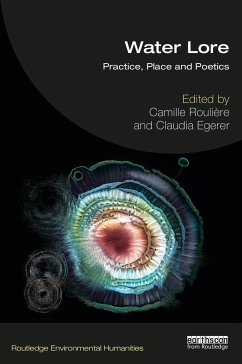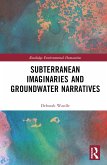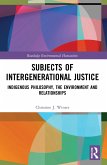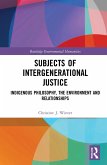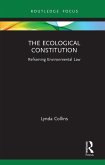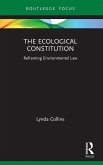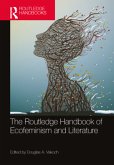Located within the field of environmental humanities, this volume engages with one of the most pressing contemporary environmental challenges of our time: how can we shift our understanding and realign what water means to us? Water is increasingly at the centre of scientific and public debates about climate change. In these debates, rising sea levels compete against desertification; hurricanes and floods follow periods of prolonged drought. As we continue to pollute, canalise and desalinate waters, the ambiguous nature of our relationship with these entities becomes visible. From the paradisiac and pristine scenery of holiday postcards through to the devastated landscapes of post-tsunami news reports, images of waters surround us. And while we continue to damage what most sustains us, collective precarity grows.
Breaking down disciplinary boundaries, with contributions from scholars in the visual arts, history, earth systems, anthropology, architecture, literature andcreative writing, archaeology and music, this edited collection creates space for less-prominent perspectives, with many authors coming from female, Indigenous and LGBTQIA+ contexts. Combining established and emerging voices, and practice-led research and critical scholarship, the book explores water across its scientific, symbolic, material, imaginary, practical and aesthetic dimensions. It examines and interrogates our cultural construction and representation of water and, through original research and theory, suggests ways in which we can reframe the dialogue to create a better relationship with water sources in diverse contexts and geographies.
This expansive book brings together key emerging scholarship on water persona and agency and would be an ideal supplementary text for discussions on the blue humanities, climate change, environmental anthropology and environmental history.
Breaking down disciplinary boundaries, with contributions from scholars in the visual arts, history, earth systems, anthropology, architecture, literature andcreative writing, archaeology and music, this edited collection creates space for less-prominent perspectives, with many authors coming from female, Indigenous and LGBTQIA+ contexts. Combining established and emerging voices, and practice-led research and critical scholarship, the book explores water across its scientific, symbolic, material, imaginary, practical and aesthetic dimensions. It examines and interrogates our cultural construction and representation of water and, through original research and theory, suggests ways in which we can reframe the dialogue to create a better relationship with water sources in diverse contexts and geographies.
This expansive book brings together key emerging scholarship on water persona and agency and would be an ideal supplementary text for discussions on the blue humanities, climate change, environmental anthropology and environmental history.

